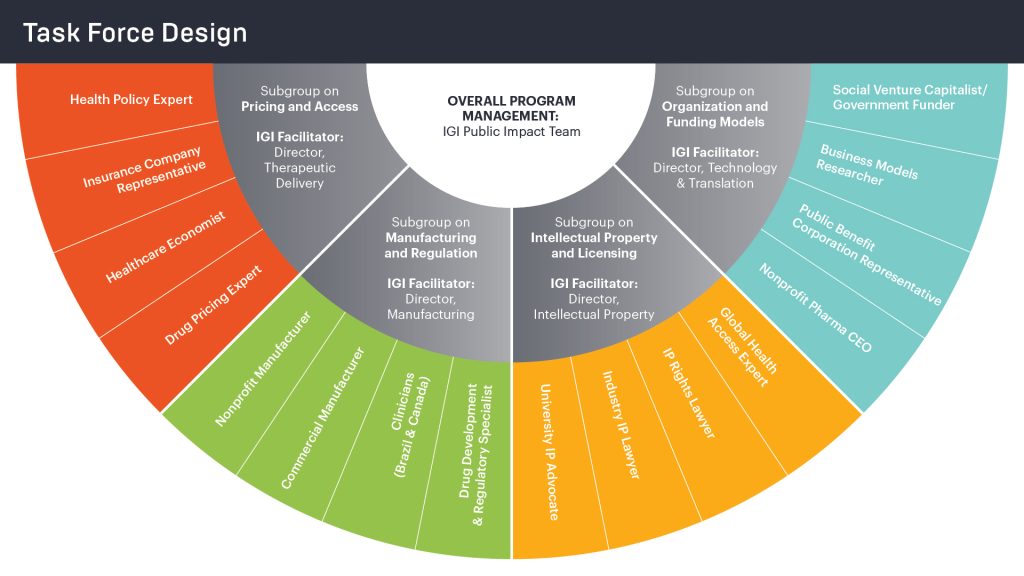
Making Genetic Therapies Affordable and Accessible: IGI’s New Recommendations
In 2022, IGI’s Public Impact Team launched a year-long Affordability Task Force (ATF) project aimed at solving one of the trickiest challenges for genomic medicines: price.

“Part of IGI’s mission is to make genomic medicines affordable and accessible to anyone who would benefit from them,” says Melinda Kliegman, IGI’s Director of Public Impact. “We’re in an exciting moment where CRISPR is making it possible to treat or even cure genetic diseases. The tragedy will be if they are inaccessible to those who need them most because of price.”
With the support of The Doris Duke Charitable Foundation, Arnold Ventures and The Armstead-Barnhill Foundation for Sickle Cell Anemia, the Public Impact Team brought together 30 experts from diverse fields, including not just genome engineering, but economics, manufacturing, venture capital, intellectual property, and more. Through a series of meetings, the ATF members sought first to understand what goes into the pricing of genomic medicines. Currently, gene therapies can be priced at over $3 million per patient, but the task force created what they are calling the “10x Less Model” that could cut current prices for genomic therapies by a factor of 10.
The team examined the costs of development, manufacturing, and considered alternative approaches to handling intellectual property as well as alternative organizational models for drug development in order to create a roadmap for the IGI and other academic institutions that share the goal of developing affordable and accessible genomic therapies.

“Our focus is on accessibility for low-income individuals living in the United States, and also on accessibility for individuals in low and middle-income countries. This is particularly crucial for sickle cell disease, which is one of our flagship projects,” says Kliegman. “While there are about 100,000 Americans living with sickle-cell disease, from a global perspective, sub-Saharan Africa actually has the highest incidence. This is the first report to look at the issue of affordability in the context of low and middle-income countries and we are excited to push the conversation forward.”
IGI founder Jennifer Doudna is optimistic that the industry is heading in the right direction, even if prices are initially too high. “I am confident we can reach a point where genome editing reaches all who would benefit most,” says Doudna. “Health systems should help us realize the possibility of a cure rather than create financial barriers.”
To learn more about the ATF and read the complete ATF Report with recommendations for how to bring down prices for genomic therapies, click here.
You may also be interested in

IGI Seminar Series: Progress and Challenges in Delivering Cassava with RNAi-mediated Resistance to Cassava Brown Streak Disease to Smallholder Farmers in Africa – It’s Not Just About the Technology

IGI Seminar Series: Empowering Teachers, Transforming Classrooms: Advancing K-12 STEM Education

IGI Seminar Series: Writing DNA with RNA: Genome Engineering by Target-Primed Reverse Transcription

 By
Hope Henderson
By
Hope Henderson